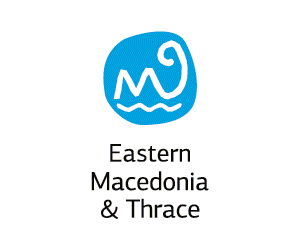Traveler's Guide
East Macedonia & Thrace
Region of East Macedonia & Thrace
The Region of Eastern Macedonia and Thrace occupies the northeastern part of Greece. It borders with Turkey easterly, Bulgaria northern and with the Regional Unit of Serres westerly. Southwest is washed by the Aegean Sea and southeast by the Thracian Sea. It includes the Regional Unities: Drama, Kavala, Xanthi, Rodopi and Evros.
It has a total area of 14.157 thousand hectares and covers the 10.7% of the total area of the country.
Also includes two major islands of Thracian Sea, Thassos and Samothrace.
Crossroad of major sea and land routes by which, for thousands of years, are moving people and goods, ideas and habits to and from the four cardinal points: from the Black Sea and Asia to Western Europe and from North Europe and the Balkans to the Mediterranean and North Africa.
The traces of its history, that start from the Paleolithic season and arrive to our days, are everywhere: caves, rock paintings, forts, temples, theaters, citadels, mines, graves, tumuli, marble quarries, Christian monuments, monasteries and holy places , aqueducts, Islamic monuments, traditional villages, Megara, mansions, tobacco warehouses.
The Region of Eastern Macedonia and Thrace, during the ancient times, was covered by forests at the rate of about 80%, but today this percentage has limited to 55% per area. In its extent there are trackless forests, virgin nature, high mountains, rich flora and fauna, large rivers, lakes and lagoons and an endless coastline with clear blue waters and friendly beaches.
The region is a place of music, dance, feast and ritual. Dionysus and Orpheus never left from this earth. The reversals of nature (winter, spring, etc.) give an opportunity for reversals of another class: masquerading and walking over fires, and outspoken sprees, kidnappings and robberies, all in the context of ritual.
Fisilti Hamami
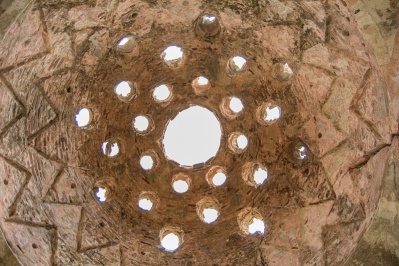 The Bath of Fisilti (or Fisilti Hamami) are located in the southern part of the city, next to the banks of River Erythropotamos. It is a monument of unique value, ...
The Bath of Fisilti (or Fisilti Hamami) are located in the southern part of the city, next to the banks of River Erythropotamos. It is a monument of unique value, ...
Municipal Gallery of Xanthi
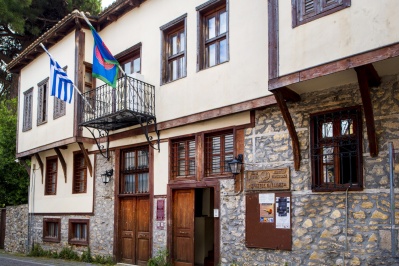 The municipal art gallery located in the corner Orpheus and Pindar. In a beautiful old mansion of the family Kalevra, where located in the Old Town of Xanthi, houses the ...
The municipal art gallery located in the corner Orpheus and Pindar. In a beautiful old mansion of the family Kalevra, where located in the Old Town of Xanthi, houses the ...
Educational Academy Zarifios
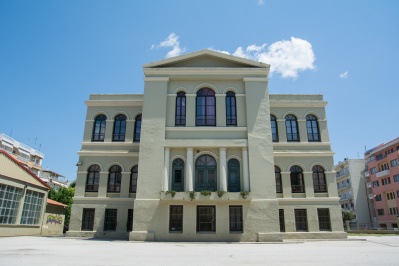 Another neoclassical building in the city of Alexandroupoli, which is a benchmark, is the Educational Academy of Zarifios, which for more than half a century was the only senior spiritual ...
Another neoclassical building in the city of Alexandroupoli, which is a benchmark, is the Educational Academy of Zarifios, which for more than half a century was the only senior spiritual ...
New Temenos (Yeni Mosque)
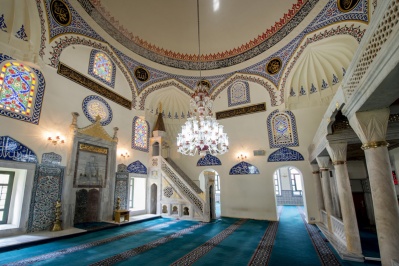 The mosque was founded in the late 16th century (1585) by master Ahmet who was head of the financial department of the Ottoman Empire during the reign of Sultan Murad ...
The mosque was founded in the late 16th century (1585) by master Ahmet who was head of the financial department of the Ottoman Empire during the reign of Sultan Murad ...
Holy Church of Saint Athanasius
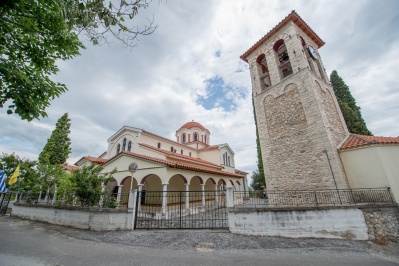 Location: Kallithea. On the western edge of the village there is the church of Saint Athanasios. The church was built in 1832-1835. Due to damage that happened in the central ...
Location: Kallithea. On the western edge of the village there is the church of Saint Athanasios. The church was built in 1832-1835. Due to damage that happened in the central ...
Monument Apostle Paul - Church St. Nicholas
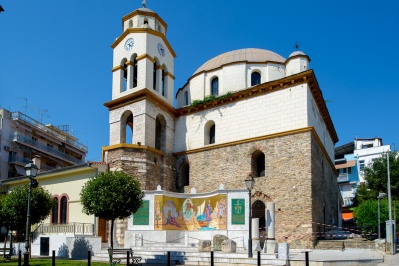 Synthesis of mosaic 35m2 is placed in the step of Apostle Paul in the city of Kavala next to Church Agios Nikolaos, with tittle "The arrival of the Apostle Paul ...
Synthesis of mosaic 35m2 is placed in the step of Apostle Paul in the city of Kavala next to Church Agios Nikolaos, with tittle "The arrival of the Apostle Paul ...
Maggana beach
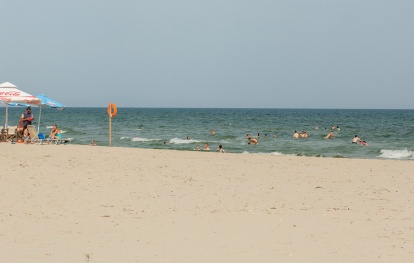 The Maggana beach has a large area of sand with progressive deepening for novice swimmers in the sea. It is ideal for families, sports, sunbathing, games, beach volleyball, horseback riding, ...
The Maggana beach has a large area of sand with progressive deepening for novice swimmers in the sea. It is ideal for families, sports, sunbathing, games, beach volleyball, horseback riding, ...
Trypiti
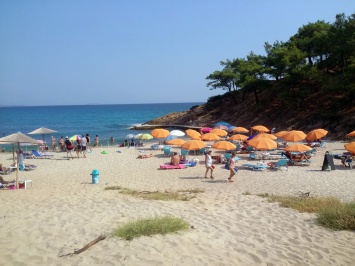 Tripiti beach is found at the end of a downward road. Many new hotels
are constantly under construction over there.If you visit this beach and
you are the adventurous type,explore ...
Tripiti beach is found at the end of a downward road. Many new hotels
are constantly under construction over there.If you visit this beach and
you are the adventurous type,explore ...
National Park of forest of Dadia
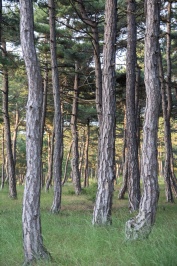 This forest is a very important habitat. The importance lies in the fact that here there are found countless species of flora of the area but mainly because here, very ...
This forest is a very important habitat. The importance lies in the fact that here there are found countless species of flora of the area but mainly because here, very ...
Stavroupolis Settlement
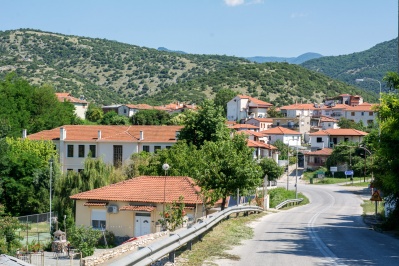 Stavropoli is the administrative center of the municipality. Is a town beside the River Nestos, 28km from the city of Xanthi. It had been the centre of tobacco cultivation until ...
Stavropoli is the administrative center of the municipality. Is a town beside the River Nestos, 28km from the city of Xanthi. It had been the centre of tobacco cultivation until ...
Thermes Settlement
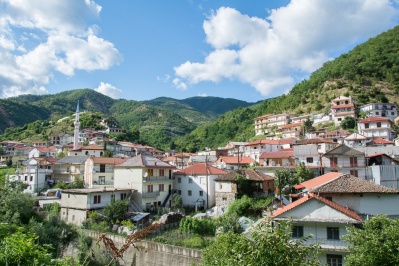 The settlement is situated about 40 km from the city of Xanthi in a mountainous terrain. It has about 1200 inhabitants, whose main occupation is agriculture activities and livestock. Thermes ...
The settlement is situated about 40 km from the city of Xanthi in a mountainous terrain. It has about 1200 inhabitants, whose main occupation is agriculture activities and livestock. Thermes ...






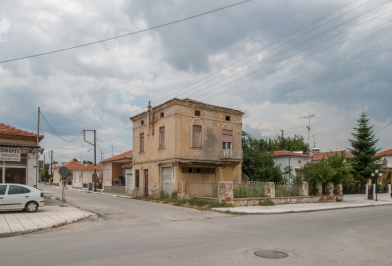 It lies on the road of Drama - Kavala at a distance of 10 and 25 km respectively.The settlement of Doxato is an interesting example of the application of innovative ...
It lies on the road of Drama - Kavala at a distance of 10 and 25 km respectively.The settlement of Doxato is an interesting example of the application of innovative ...
